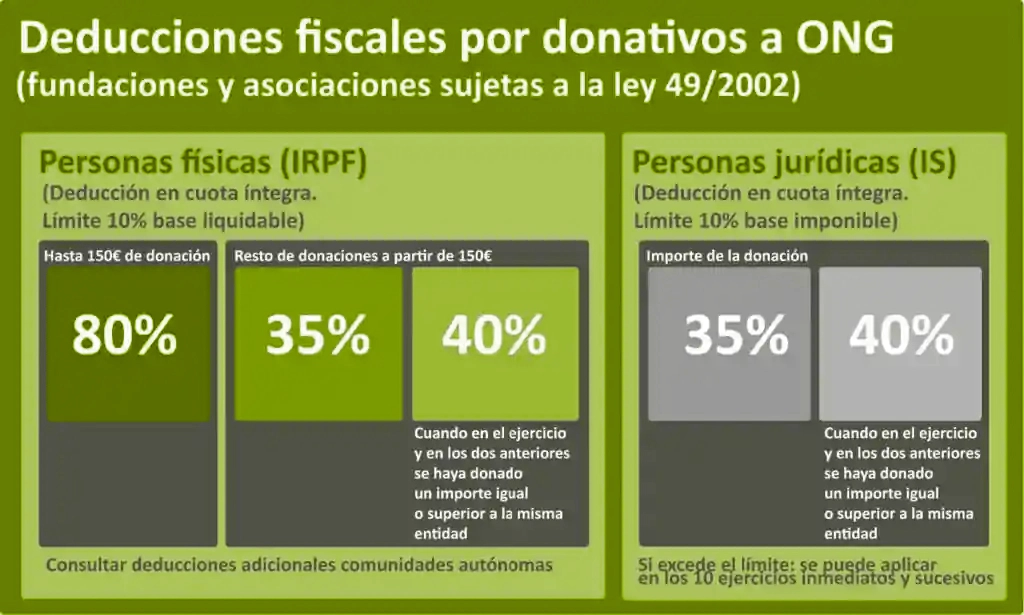Nothing like absence to show being. Life is a transfer of games and births, an incessant concert of grays where harmony does not always win. From the sculptor Jorge Oteiza we learned the generating capacity of the void, their dynamic ability to connect, in true communion, with the mystery and tragedy of existence. Only from these premises can the current situation of the Amazon rainforest be understood, the largest forest on earth. In theory, this sanctuary is constituted by about 7.000.000 million square kilometers of forests spread over nine countries. The trap lies in taking the wikipedic quote at face value, to peek at the map and entrust ourselves to that green stain that colors the venous belly of South America. We'd better believe that the Roman Empire still exists in Europe, when we can only search its ruins, your absence, its pulverized memory.
For my part, I began to open my eyes during a trip that took me to Brazil in 2009. After a boat trip down the Amazon, I followed the BR-163 highway that crosses the states of Pará and Matto Grosso from north to south. The bus ride lasted four days. The memory of the first two nights, leaving Pará, it is occupied by the ghostly memory of the fires. All the horizon, towards all the cardinal points: fires, destruction. The deadly and incandescent advance of civilization. Ya en Matto Grosso, the suspected dystopia was evident in all its harshness; and the void appeared, the nothing that Michael Ende wrote about. There was no more Ivory Tower, nor child empress. But hundreds of miles of soy fields, where on my tourist map - which was barely a decade old- aparecían unas ya inexistentes “;selvas vírgenes”;. Soy destined to make ethanol for passenger cars, it was just one of the heads of the hydra. Few decades ago, the Panamaericana was the only highway in the jungle. But from the hand of multinationals, in their search for access to natural resources, others were born, until creating an intricate network that covers everything like a metastasis. Where they arrive, further, in a hell of a loop, new companies and settlers, that devastate the jungle at surprising speed.
On the borders between the different states there are vast wild regions where the power of the administrations barely reaches. They are places of rich biodiversity, where, further, se refugian los últimos elementos amerindios en “;aislamiento voluntario”;. Taromenanes, maskho red, machiguengas, Korubos or Toromonas are the names of some of the last uncontacted tribes of America. But the shadows of the trees also harbor horrors. Where the control of states is conspicuous by its absence, It is where the big mafias operate; who control cocaine plantations, illegal gold and gemstone mining, cutting without permission of protected plant species, as well as the murder and kidnapping of members of indigenous communities, either to kick them off their lands, extort them, or to use their girls as sex slaves in brothels.
Whatever its color, the political powers or collaborate in this drift, or are they powerless to stop it. Not even National Parks escape disgrace. In the Yasuní of Ecuador - in whose intangible zone the isolated people of the Tagaeri defend themselves with spears from the ravages of colonization- I myself witnessed the action of the oil companies, that poison and destroy the protected space. In Peru, especially in the Department of Loreto, there is not a week that there are no oil spills, poisoning the aquifers that nurture so many human species and communities. South of the Madre de Dios River, around towns like Mazuco, entire tracts of mercury poisoned silt remain as testimony to the action of illegal gold mining, controlled by powerful outlaw organizations. Even in Bolivia, where until recently the indigenous Evo Morales has ruled -in departments such as La Paz-, each year new extractive permits have been granted to transnationals. No Amazonian country escapes this debacle, but it is in Brazil where it adopts its most terrifying face. The devastation that began decades ago - since 1970 the country has lost a wooded area the size of France -, It has now run amok with the arrival to the Presidency of Jair Bolsonaro, a leader bent on destroying the already weak counterpowers - embodied by political opponents, journalists, indigenous community leaders, Environmental NGOs, etc.- that try to stop the inevitable.
Opposing this invasive logic is not dangerous at all. According to data from Ecologists in Action, in 2018, three out of four activists killed were dedicated to defending the environment, to indigenous communities or to denounce extractivist industries, especially in South America. But nobody takes deception. The jungle is much more than a forest that houses animals - approximately 30% of the terrestrial species on the globe- and native peoples. From its plants we obtain most of the drugs with which to cure many diseases. Y, Of course, the Amazon is the lung of the planet; its vegetable mass processes every year 70.000 millions of carbon released from factories into the atmosphere, proving to be a decisive actor to stop climate change.
For all this it is necessary to think about the Amazon from its absence, with oteizian logic, like Eden that lives its last days. Well, as Milton said, paradise is not lost, has already been lost. Soon, in less than two decades, Of the great forest of the world, only the memory and the involuntary lie of maps and dictionaries will remain. And a dystopian void that, like a domino piece, will bring unpredictable global consequences
Lessons from Notre Dame
Impotence is a dangerous feeling when it leads to inaction. It was the conclusion that I drew, after attending - together with millions of citizens around the world- to the fire of Notre Dame Cathedral through my TV screen. The vision of the Gothic jewel turned into a pyre, brought me to a state between disbelief and despair. I could not believe it. The building was on fire. The disaster seemed absolute, especially, when, at about 19:50 hours, the wooden needle fell apart. The general stupor was magnificently summed up in the words Denis Jachiet, Auxiliary Bishop of Paris, eyewitness to the fire, dedicated to the media: “;My feeling was one of complete sinking. A feeling both of helplessness and of disaster. I could not believe what I was seeing. Great sadness for this disaster, que en poco más de una hora ha destruido un edificio que ha atravesado casi nueve siglos”;.
Five months after the event, newcomer from a journey through the heart of the Amazon, I feel a similar sense of hopelessness and helplessness in the face of the loss already accomplished. The bet - in summer 2019- he went through and radiographed the state of the jungle and its inhabitants along the bed of the Madre de Dios River, since it descends furiously from the Peruvian Andes, until, already in Brazil, changed its name to the Madeira river, spills its waters in the great Amazon. The reported picture can only be described as dire. In the Alto Madre de Dios, around the Manu National Park, Native communities told us of their fights to drive loggers out of their communities. They patrolled the limits of their territory day and night, that was also pasture for cocaine traffickers. To satisfy the revelries of millions of American drug addicts, European and Brazilian, drug traffickers fill the jungle with coca plantations and pools where they transform the leaves into the base paste, through a process with chemical products that then end up in the surrounding aquifers, polluting them. Nor can the corruption of native communities be ignored because of the money from this illicit trade..
In the middle course, from the town of Boca Colorado, to the provincial capital of Puerto Maldonado, hydra takes a different form, but just as terrifying: the gold rush has led to the ecological and social degradation of this region, what is grass of organized crime. Like a biblical plague, Thousands of mining camps have infested the area leading to an insane cycle, that affects the place at all levels: mining the earth destroys the fertile layers. There are extensive areas covered with sand where nothing grows, as if the Sahara desert had moved to the Amazon. The jungle retreat, further, It's not the only problem. Well, the extractive activity involves the use of mercury to capture the gold particles in an amalgam that is then burned to evaporate the liquid metal and release the treasure.. So that the mercury, highly toxic, ends up in the atmosphere, and of this, passes to soils and waters, to end up in the food chain and in the organisms of all living things. Pollution in this sense has reached such a height and the wooded area has been so devastated that the Peruvian Government, often passive and reluctant, This time he has embarked on a battle at all levels to control the mess (and also, why are we going to fool ourselves, to control the dividends of an economic activity that until now has escaped its control). Con más de mil soldados y policías sobre el terreno bajo la denominada “;Operación Mercurio”;, what is ongoing, the Andean country is strongly committed to restoring both the health of the Amazon forest and to recovering social sense. We were able to witness police assault operations on lawless territories, such as La Pampa - mining territory where the underworld rules and which is located on both sides of the Interoceanic Highway- to attend endless trials of horror, in the form of evidence of murders, white slave traffic, organized crime, government corruption, etc.
In Brazil and Bolivia, the problems described were joined to others such as those derived from other extractive activities. The worst of all: las “;quemadas”;, or forest burns led by farmers and ranchers, that continually escape your control, affecting thousands of square kilometers of forest spurred now by the hot flashes resulting from Climate Change. Upon our arrival in the Brazilian village of Abuna, the fumes of thousands of fires obscured the sun for more than three days.. You could barely breathe. The vision was apocalyptic. But the worst was the denial of the locals. Mayor Lenio Ibáñez, took away iron from the matter. “;It happens every year. It is normal in summer -he said- para culpar luego de todo escándalo a los naturalistas a los que tildaba de mentirosos”;.
Before this panorama, defeatism seems inevitable, as when last April 16, the world witnessed the collapse of the spire of the temple of Notre Dame. And yet, the cathedral still stands. A small group of twenty firefighters, with serious risk to their lives, controlled the fire from the inside, As chains of brave and committed people saved the relics. And an unprecedented mobilization later raised 900 million for its reconstruction. In the amazon, in the meantime, in the face of a disastrous example offered by leaders such as Evo Morales or Jair Bolsonaro, a small but inspired group of activists, intellectuals, scientists, Lawyers and politicians maintain hope and invite us to act and trust our courage without giving up. Why, as repeated by the Peruvian photographer and environmental activist Pavel Martiarena, “;es demasiado tarde para ser pesimistas”;




